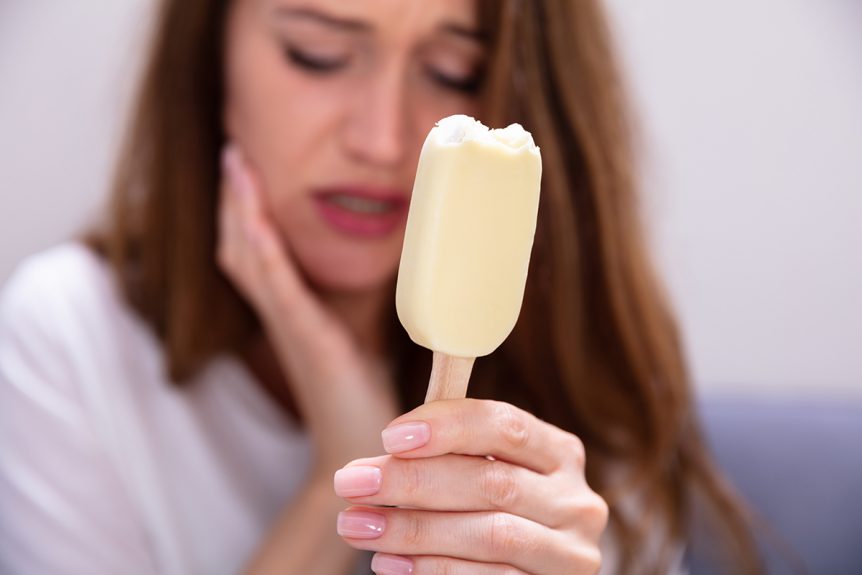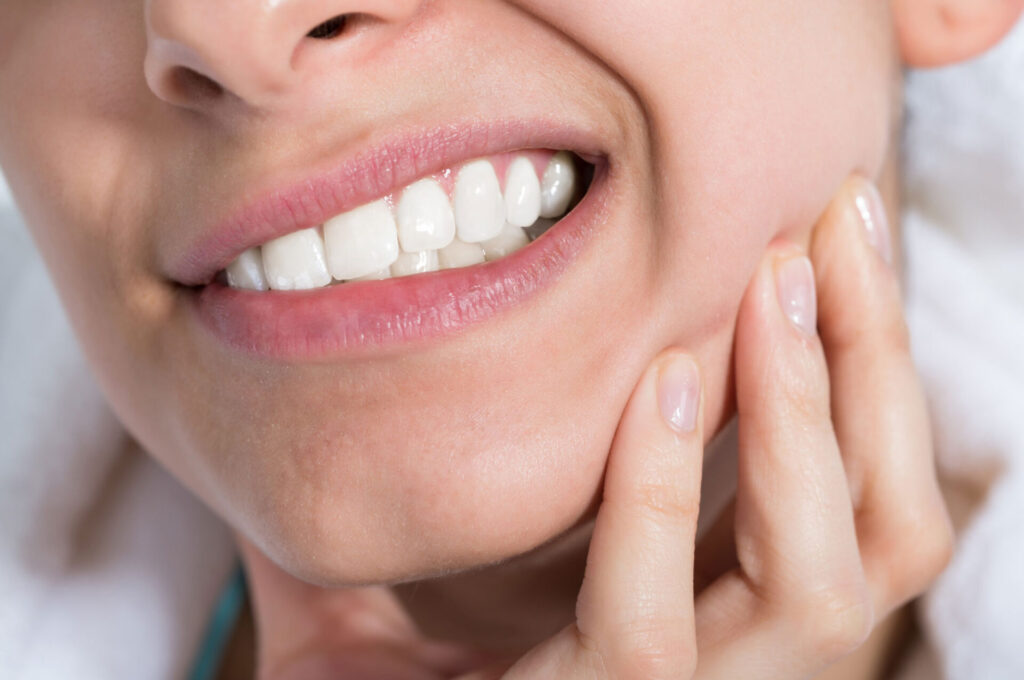
Today, we’re diving deep into the world of tooth sensitivity a common dental issue that affects millions of people worldwide. We’ll explore what tooth sensitivity is, its causes, symptoms, treatment options, and preventive measures, all in a friendly and easy-to-understand tone.
What is Tooth Sensitivity?
Tooth sensitivity refers to the discomfort or pain experienced when teeth are exposed to certain boost, such as hot, cold, sweet, or acidic foods and beverages. Imagine enjoying your favorite ice cream or sipping on a hot cup of coffee, only to cringe in pain. That’s the reality for individuals with sensitive teeth.
Symptoms of Tooth Sensitivity
The symptoms of tooth sensitivity can vary from person to person, but common indicators include:
- – Sharp pain or discomfort when consuming hot, cold, sweet, or acidic foods and beverages.
- – Sensitivity to cold air or water during dental procedures.
- – Discomfort when brushing or flossing teeth, especially near the gumline.
What Causes Sensitive Teeth?

Numerous factors can contribute to the development of tooth sensitivity, including:
- – Exposed Dentin: Dentin is the layer of the tooth beneath the enamel. When the enamel wears away or the gums recede, the dentin becomes exposed, leading to sensitivity.
- – Gum Recession: Gum recession occurs when the gums pull away from the teeth, exposing the sensitive root surfaces. This can be caused by factors such as periodontal disease or aggressive brushing.
- – Enamel Erosion: Enamel erosion, often caused by acidic foods and beverages or gastric reflux, can wear away the protective outer layer of the tooth, exposing the dentin and leading to sensitivity.
- – Dental Cavities: Untreated cavities can expose the inner layers of the tooth, including the dentin, leading to sensitivity.
- – Teeth Grinding (Bruxism): Grinding or clenching the teeth can wear down the enamel, making the teeth more susceptible to sensitivity.
- – Acidic Foods and Beverages: Consuming acidic foods and beverages regularly can weaken the enamel, making the teeth more prone to sensitivity.
- – Tooth Whitening Products: Overuse of tooth whitening products can weaken the enamel, leading to sensitivity.
Treatment and Management Options
While tooth sensitivity can be uncomfortable, several treatment options and management strategies are available:
- – Using Desensitizing Toothpaste: Specialized toothpaste containing ingredients like potassium nitrate or fluoride can help alleviate tooth sensitivity by blocking the transmission of sensations from the tooth surface to the nerve.
- – Fluoride Treatments: Professional fluoride treatments applied by a dentist can strengthen the enamel and reduce sensitivity.
- – Dental Procedures: In some cases, dental procedures such as bonding, crowns, or inlays may be recommended to cover exposed dentin and reduce sensitivity.
- – Avoiding Acidic Foods and Beverages: Limiting consumption of acidic foods and beverages can help prevent further enamel erosion and sensitivity.
- – Using a Soft-Bristled Toothbrush: Using a soft-bristled toothbrush and adopting proper brushing techniques can help prevent enamel erosion and gum recession.
- – Wearing a Mouthguard: For individuals who grind their teeth at night, wearing a mouthguard can protect the teeth from damage and reduce sensitivity.
Prevention Tips
Preventing tooth sensitivity is key to maintaining oral health and comfort. Here are some tips to help prevent tooth sensitivity:
- – Practice Good Oral Hygiene: Brush your teeth twice a day with a fluoride toothpaste and floss daily to remove plaque and prevent gum disease.
- – Use a Soft-Bristled Toothbrush: Choose a toothbrush with soft bristles to avoid damaging the enamel and gums.
- – Avoid Overbrushing: Brushing too vigorously or using a hard-bristled toothbrush can wear down the enamel and lead to sensitivity.
- – Limit Acidic Foods and Beverages: Reduce your intake of acidic foods and beverages, such as citrus fruits, soda, and sports drinks, which can weaken the enamel over time.
- – Attend Regular Dental Check-ups: Visit your dentist for regular check-ups and professional cleanings to maintain oral health and address any issues early on.
Conclusion
Tooth sensitivity is a common dental issue that can significantly impact one’s quality of life. By understanding the causes, symptoms, treatment options, and preventive measures outlined in this blog post, individuals can take proactive steps to manage their sensitivity and maintain healthy, comfortable teeth.
Remember, if you’re experiencing tooth sensitivity, don’t hesitate to reach out to Leila Hariri Dental Clinic (LHDM) for expert care and guidance.
FAQs
1. Can tooth sensitivity go away on its own?
In some cases, mild tooth sensitivity may improve on its own. However, it’s essential to address the underlying cause to prevent further discomfort.
2. Is tooth sensitivity a sign of a more severe dental problem?
While tooth sensitivity can be caused by various factors, it may indicate underlying dental issues such as cavities, gum disease, or enamel erosion. It’s essential to consult a dentist for proper diagnosis and treatment.
3. How can I prevent tooth sensitivity?
To prevent tooth sensitivity, practice good oral hygiene, avoid acidic and sugary foods, use a soft-bristled toothbrush, and attend regular dental check-ups for professional cleanings and treatments.
4. Can sensitive teeth be treated permanently?
While tooth sensitivity can be managed, it may not be permanently cured. However, with proper dental care and preventive measures, individuals can significantly reduce symptoms and discomfort.
5. Are there any natural remedies for sensitive teeth?
Some people find relief from sensitive teeth by using desensitizing toothpaste, applying fluoride gel, or rinsing with saltwater. However, it’s essential to consult a dentist before trying any home remedies.


